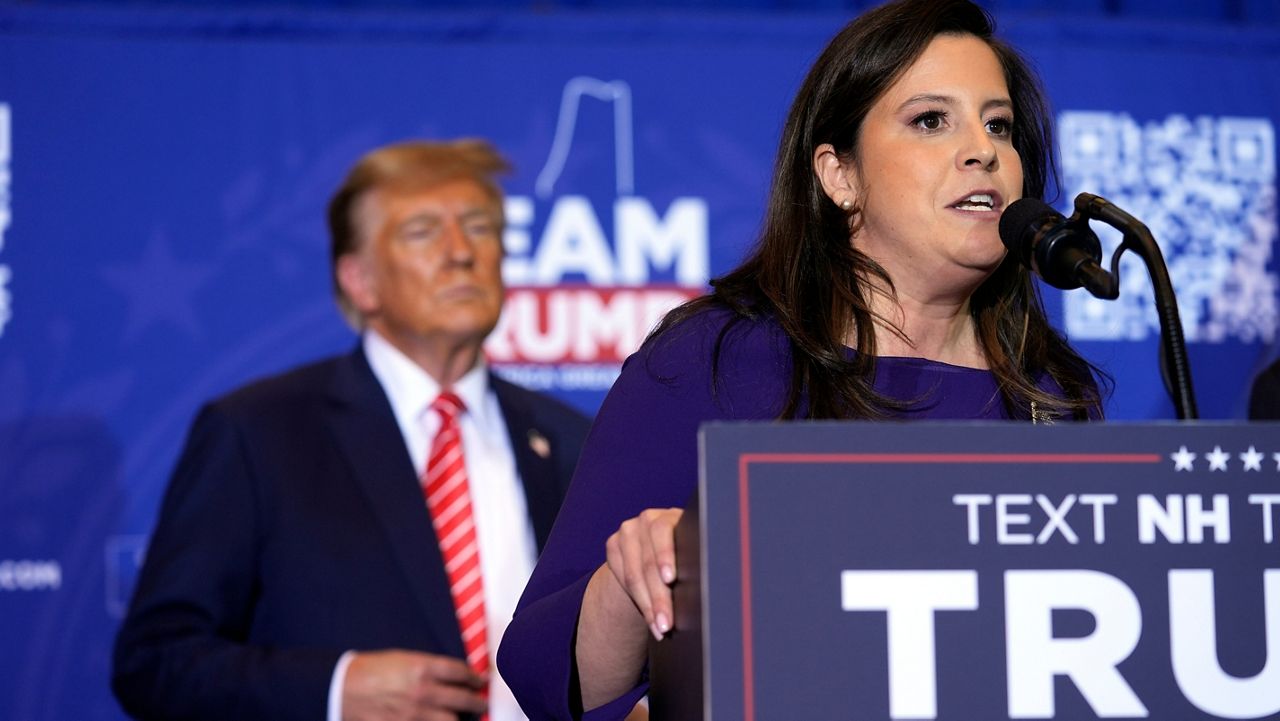“A new Republican Star is born. Great going @EliseStefanik!”
That’s what President Donald Trump tweeted on Nov. 17, 2019, about the northern New York congresswoman. Facing his first impeachment at the time, Rep. Elise Stefanik quickly became one of the president’s most vocal and effective defenders during those hearings. At 35 at the time, she quickly earned praise and respect from elders of the GOP in a very public way.
Those hearings raised her political profile ever upward where she found herself as Trump’s nominee to be the next U.N. ambassador just two days after his election win last November.
But on Thursday, Trump withdrew her nomination for the position, citing the concern over plundering another Republican from the House of Representatives when the party’s majority in the chamber is extremely thin and during a crucial time for Trump to enact his agenda.
So Stefanik will remain in her seat representing New York’s 21st Congressional District, but that might be a good thing for Trump and Republicans — and not just because of the numbers. Keeping a strong ally in the House of Representatives can be an asset to a president.
Stefanik has stayed by the president. She heavily supported his agenda in his first term, cast doubt on the 2020 presidential election that he lost to Joe Biden, voted against certifying the election on Jan. 6, 2021, encouraged other Republican candidates to drop out of the presidential race in 2024 after Trump crushed the Iowa caucus and even endorsed Trump’s comeback presidency before he announced he was running.
It can be difficult to get much attention when one is a young Republican woman from a rural district in a state dominated by Democrats. But she has kept that momentum from those 2019 impeachment hearings even after Trump left office the first time. She took over as chair of the House GOP conference and became the third-highest ranking Republican in the chamber after the party ousted former Wyoming Rep. Liz Cheney from that job.
She has the fiery confrontation that Republican voters like to see in the era of MAGA, and yet also has the experience and connections with longtime Republican institutions that have long since been expelled from the party in its modern form. She worked in the George W. Bush administration and Mitt Romney's presidential campaign, was a protégé for former House Speaker Paul Ryan and was a staunch supporter of former House Speaker Kevin McCarthy right up until the end when her party’s most insurgent members led a revolt against him that ultimately chased him out of office.
Referring to the latter, keeping Stefanik with her influence in the House might be beneficial to the current GOP leadership, given the party’s thin margins to work with (218 Republicans, 213 Democrats and four vacancies) and already a sense of tension seen between Speaker Mike Johnson and some members during his speakership election in January.
Not only is she an effective communicator, Stefanik has proven to be a considerable fundraiser and campaigner, particularly in her effort to grow the number of women in the Republican caucus. In 2020, for example, Stefanik’s political action committee helped more than dozen women win their congressional races around the country, including two that year in her home state that toppled incumbent Democratic men — Claudia Tenney and Nicole Malliotakis.
While spending no shortage of time criticizing Democrats in Washington, Stefanik has also spent a considerable amount of time slamming New York’s Democratic governors and the state Legislature during her tenure in Congress. Her attention to state issues has made her a possible candidate for governor for years, though she has never personally expressed interest in the job.
Should she not seek the role herself, Stefanik remaining in the House means she could continue to be an important surrogate in 2026 when Democratic Gov. Kathy Hochul is up for reelection. She campaigned fiercely three years ago for her House colleague at the time — Lee Zeldin — who came within 6 points of unseating Hochul. Trump’s strong performance in New York in 2024 indicated Democrats’ recent weakness in statewide races is not Hochul’s alone and might encourage the GOP that 2026 might be their year.
In a way, this might be a chance for Stefanik to re-introduce herself — since her most recent leadership role in the House has been taken by Michigan Rep. Lisa McClain, but Speaker Johnson says she will remain in leadership in some capacity — while also reinforcing her usefulness to Trump and the party and seeing what might come next for her.


